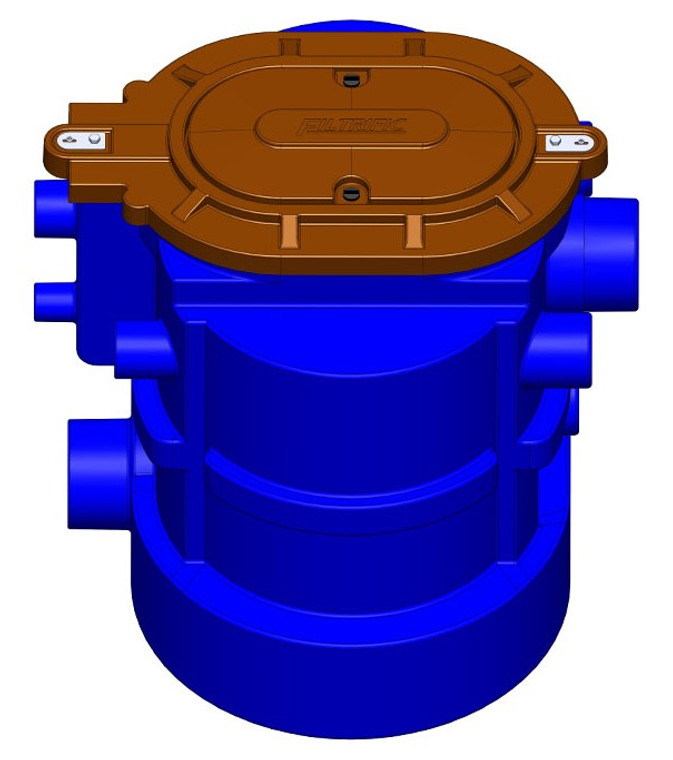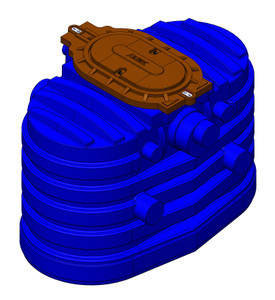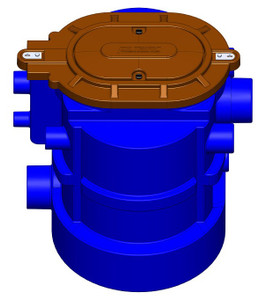
RW75-15024, 75 Gallon Rainwater Filter, 150 & 24 Mesh Filter Baskets
Filtrific
|
Water can gravity flow through the filter tank and then into buried storage tanks or a pump |
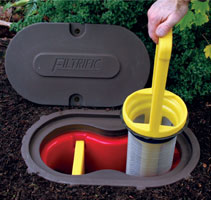
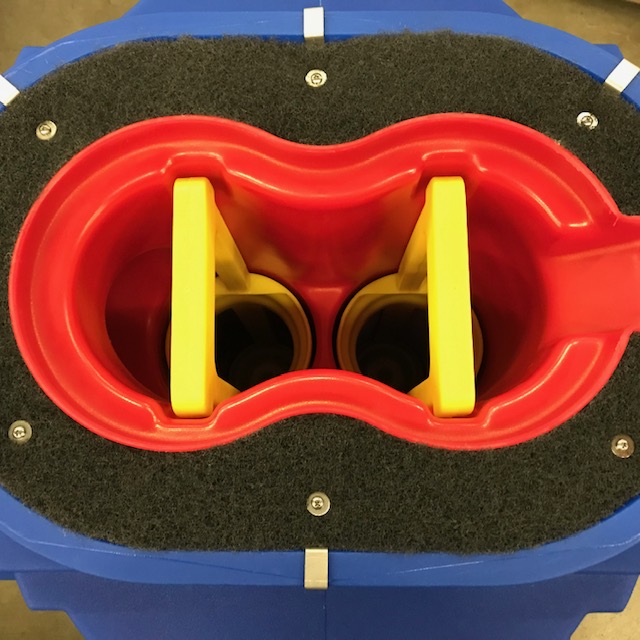
Prevents debris from falling into the filtered water when removing the perimeter lid for additional sevicing.
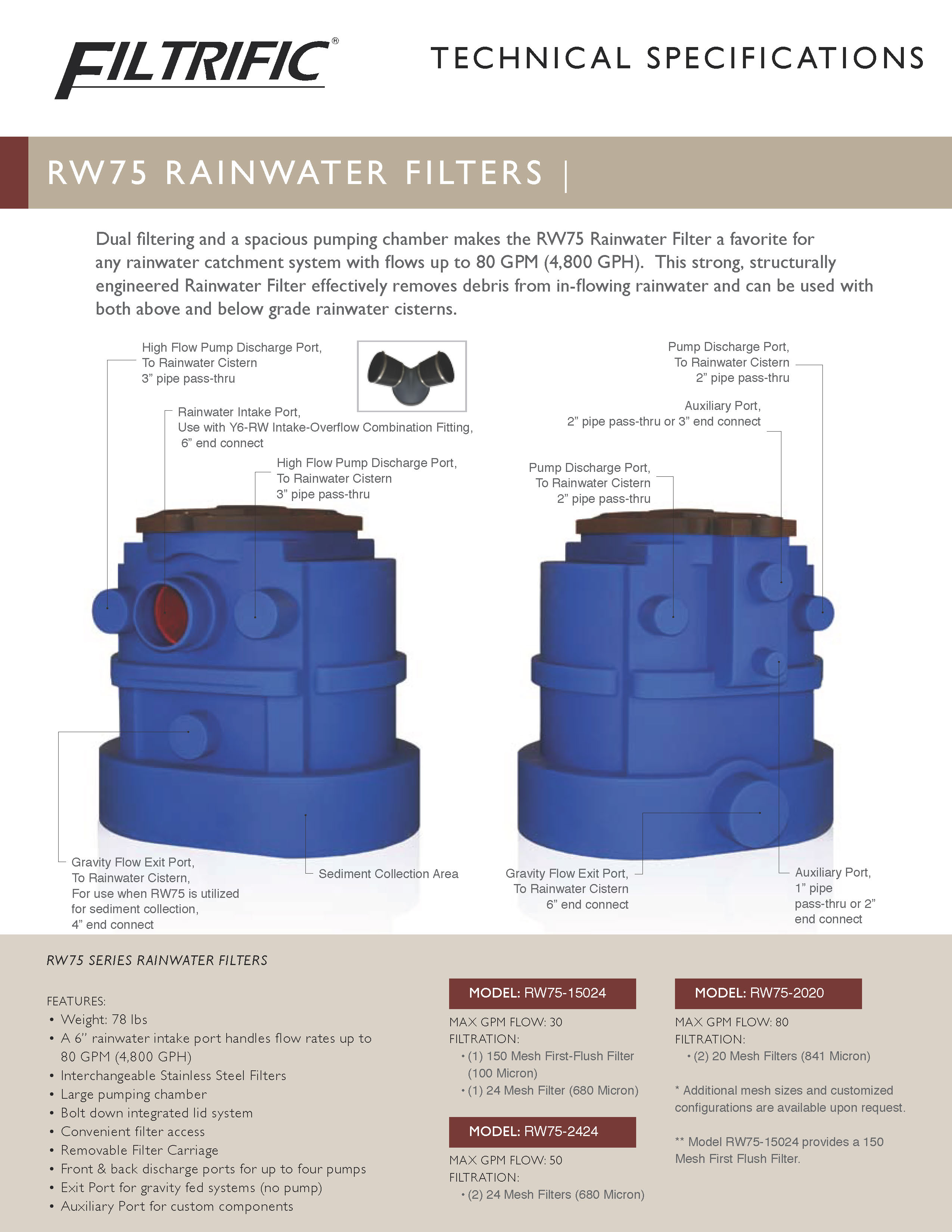
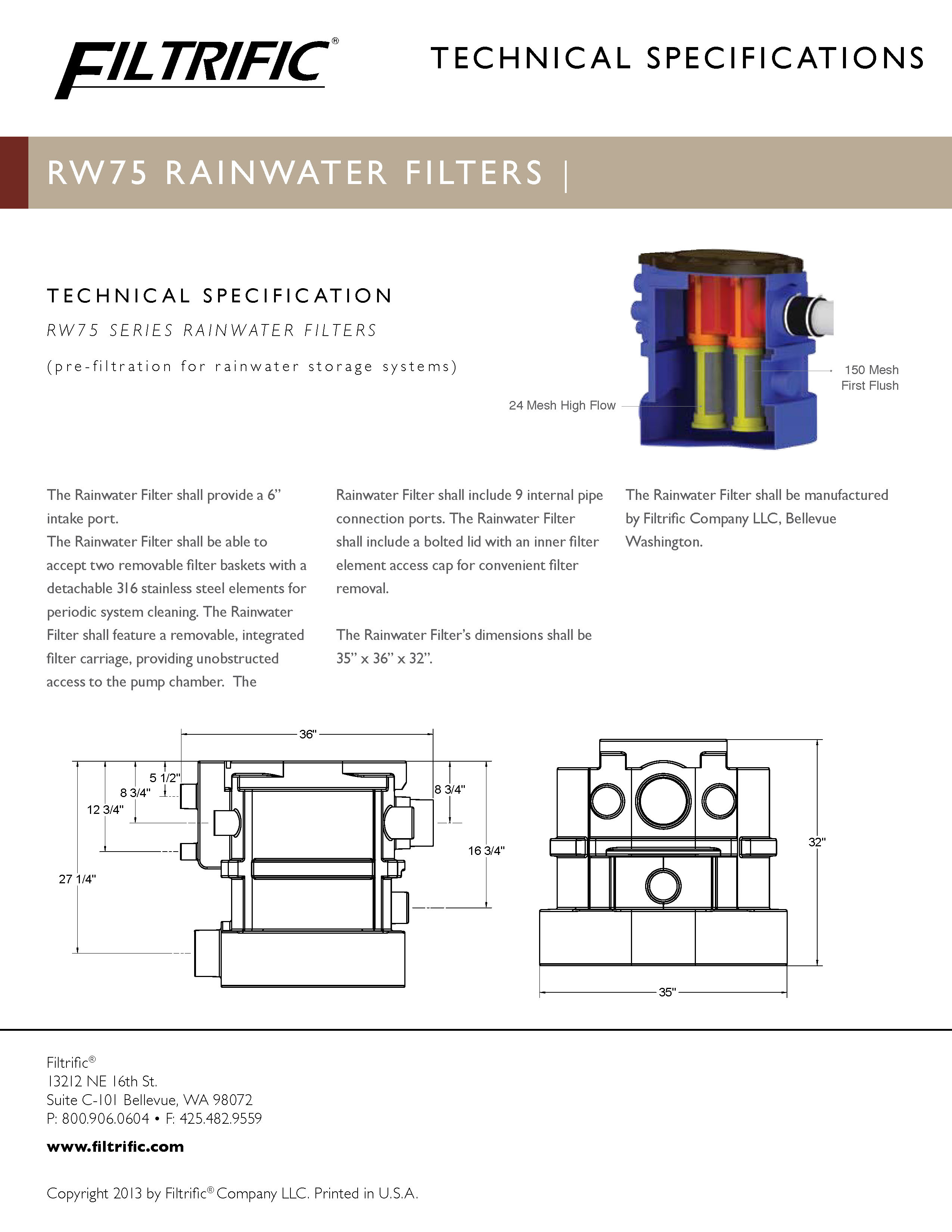
Filtrific Rainwater Filter is designed to pre-filter rainwater before storage in a large cistern. Fine mesh filtration is provided to filter small particulates. A pump can be placed in the pump chamber to transport the rainwater to an above ground cistern if necessary.
Rainwater harvesting is an eco-friendly and cost-effective way to irrigate your landscape. This involves collecting and storing rainwater in a tank or cistern, which can then be used for drip irrigation. However, before using the collected rainwater for drip irrigation, it is important to filter it to remove any debris accumulated on the roof or in the gutters so as to not clog up the drip irrigation system.
The Filtrific RW40-20 rainwater filter tank can help you achieve this by removing debris from the collected water using a stainless-steel filter that can be easily accessed by removing an access cap and lifting the filter out. The Filtrific RW40-20 rainwater filter tank can be fitted with a pump and float switch so that it will pump the water out into a drip system when it rains, or it can be installed between the downspout and a larger storage tank and used to filter out debris such as leaves, twigs, and other organic matter before it goes into the larger tank.
A drip irrigation system is the most efficient way to use the rainwater that has been collected. Drip irrigation is an efficient way to water plants because it delivers water directly to the roots of the plants, minimizing water loss due to evaporation and runoff. According to the University of Rhode Island, drip irrigation is 90% efficient at allowing plants to use the water applied, compared to other forms of irrigation such as sprinklers that are only 65-75% efficient. Drip irrigation applies water slowly at the plant root zone where it is needed most, reducing water waste, and ensuring that plants receive the right amount of water. Drip irrigation can also help to reduce weed growth and soil erosion by minimizing soil disturbance and reducing the amount of water that is applied to non-target areas. Additionally, drip irrigation can help to reduce the risk of plant diseases by minimizing leaf wetness and reducing the amount of moisture on plant surfaces.
Overall, drip irrigation is an eco-friendly and cost-effective way to irrigate your landscape. It can help you save water, reduce your water bills, and ensure that your plants receive the right amount of water they need to thrive.

